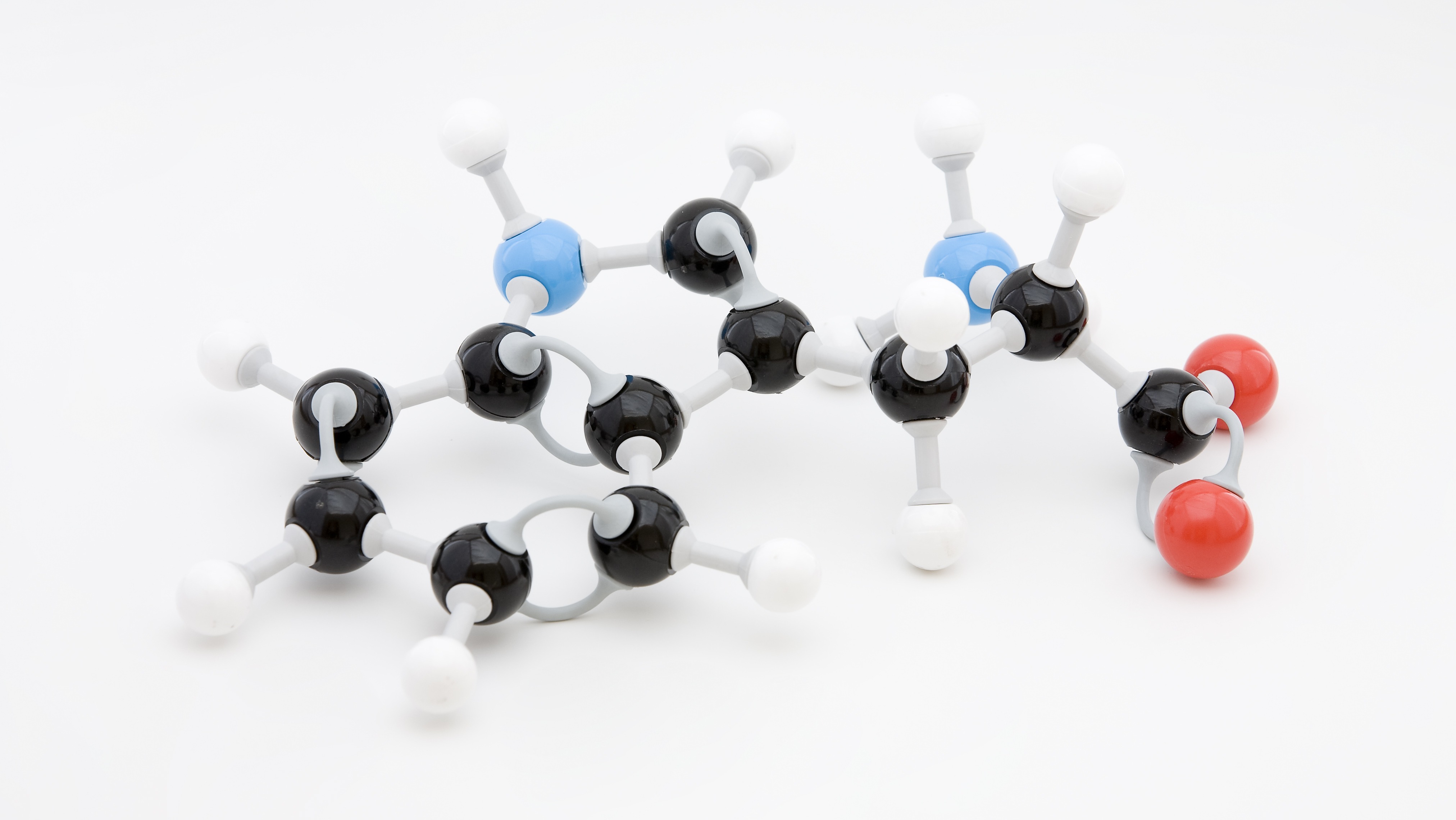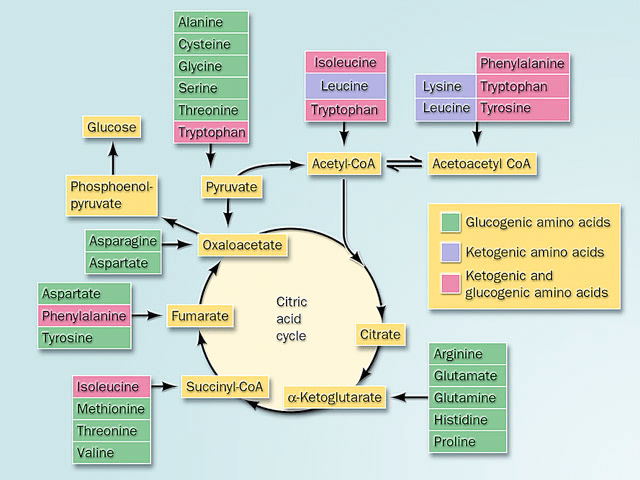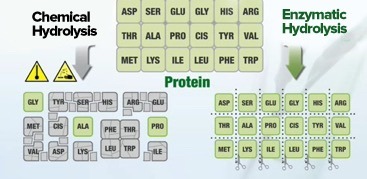Amino acids are the building blocks of life.
In plants L-Free amino acids play a key role in the so called Citric acid cycle, also called Krebs cycle, a series of chemical reactions used by all aerobic organisms to generate energy for maintenance, growth and production.
About Amino Acids
What are Amino Acids?


Citric Cycle
Amino acids can be converted via the Krebs’ cycle to glucose for energy or for storage as glycogene, starch and fat.
During times of increased stress due to drought, salt, diseases, etc., amino acids can be mobilized to produce extra energy.
This is why applying L-Free amino acids can:
boost energy levels when extra energy is needed to fight off negative effects of abiotic or biotic stress, and
help in building up an extra energy reservoir which can contribute to better yields.
help to supplement amino acid content of plants thus optimising the functioning of the plant
Enzymatic Hydrolysis
How do we obtain maximum L-Free amino acid content?
At Aminocore we use pharmaceutical grade raw protein material which is enzymatically treated. Contrary to chemical hydrolysis the enzymatic hydrolysis keeps all amino acids in the source material intact and in their L-form. L-Free amino acids are considered biologically active. After the enzymatic process our amino acid solution is filtered and desalted to obtain an end product with a L-Free amino acid content that is among the highest in the market and with a salt content that is among the lowest among competing products.
Chemical hydrolysis instead destroys part of the amino acids in the original material and produces not only an end product with a limited number of different Free amino acids, but the Free amino acids that are produced are partly in the D-form and partly in the L-form. D-amino acids can be phytotoxic and are less desired in an end product.

How to use our products?
Aminocore’s products can be applied in multiple ways. Examples of these include by applying via drones, atomizer booms, drip applications and airplanes. In addition, our products are versatile for multiple segments and traits. This means that the product provides the flexibility to target different segments, fulfill various functions, and capitalize on numerous value propositions. The broad applicability makes Aminocore’s products unique.
Most of our products contain liquid, except for Aminocore PRO SOIL, which is a pellet form. Liquid applications are mostly applied by fertigation or drip hose systems. Our products are sustainable and circular. This is due to the fact that the products are made via a natural process while using minimal energy and no minerals or additives.

